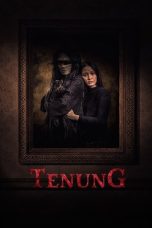The Dreamers (2003) Review: A Provocative Ode to Cinema and Youth
The Dreamers, directed by Bernardo Bertolucci and released in 2003, is a provocative and visually stunning film that explores themes of youth, rebellion, and cinema. Set against the backdrop of the 1968 Paris student riots, the film stars Michael Pitt, Eva Green, and Louis Garrel, and is known for its bold depiction of sexual and political liberation.
Plot Summary
The film follows a young American student, Matthew (Michael Pitt), who is studying in Paris during the turbulent year of 1968. Matthew befriends a pair of eccentric French twins, Théo (Louis Garrel) and Isabelle (Eva Green), who share his passion for film and invite him into their bohemian world.
As the trio’s friendship deepens, they engage in a series of increasingly intimate and provocative activities, including exploring their own sexuality and challenging societal norms. The film’s narrative intertwines their personal experiences with the political unrest of the time, reflecting the revolutionary spirit of both their lives and the larger historical context.
Performances
- Michael Pitt as Matthew: Pitt delivers a nuanced performance as Matthew, capturing the character’s fascination with cinema and his evolving relationship with the twins. His portrayal adds depth to the film’s exploration of youthful exuberance and sexual awakening.
- Eva Green as Isabelle: Green’s performance as Isabelle is both captivating and complex, embodying the character’s free-spirited nature and emotional depth. Her portrayal adds a layer of intensity and vulnerability to the film.
- Louis Garrel as Théo: Garrel’s portrayal of Théo complements Green’s performance, providing a dynamic and engaging presence. His character’s interactions with Matthew and Isabelle drive much of the film’s emotional and thematic exploration.
Direction and Script
Bernardo Bertolucci’s direction is bold and artistic, employing a lush visual style and innovative storytelling techniques. The screenplay, co-written by Bertolucci and Alberto Moravia, is rich with cinematic references and philosophical musings, reflecting the film’s deep engagement with the art of cinema and the spirit of the 1960s.
Cinematography and Style
The cinematography by Fabio Cianchetti is one of the film’s standout elements, using vibrant colors and inventive camera work to create a visually striking experience. The film’s style is heavily influenced by the classic films of the French New Wave, and it pays homage to cinema through its playful and self-referential approach.
Critical Reception
The Dreamers received mixed to positive reviews from critics. It was praised for its visual flair, engaging performances, and its bold exploration of sexuality and political themes. However, some critics felt that the film’s provocative content and lack of traditional narrative structure might be challenging for some viewers. Despite this, it remains a notable work for its artistic ambition and its examination of the intersection between personal and political revolutions.
Where to Watch “The Dreamers” Online
For those interested in watching The Dreamers, several platforms offer the film for rental or purchase:
Streaming Services
- Amazon Prime Video: Available for rental or purchase, offering various quality options.
- Apple TV: Provides the film for rental or purchase, ensuring high-definition streaming.
- Google Play Movies & TV: Offers options to rent or buy The Dreamers, catering to Android users and Google account holders.
- YouTube Movies: Allows viewers to rent or purchase the film, similar to other services.
Rental and Purchase Options
Most platforms offer flexible rental and purchase options, with prices varying based on quality and format.
Conclusion
The Dreamers is a visually captivating and thematically rich film that delves into the worlds of youth, cinema, and revolution. With strong performances from Michael Pitt, Eva Green, and Louis Garrel, and Bernardo Bertolucci’s bold direction, the film offers a provocative and artistic exploration of its subjects. While its unconventional narrative and explicit content may not appeal to all viewers, it stands out as a significant and ambitious work that celebrates the power of cinema and the spirit of rebellion.

















